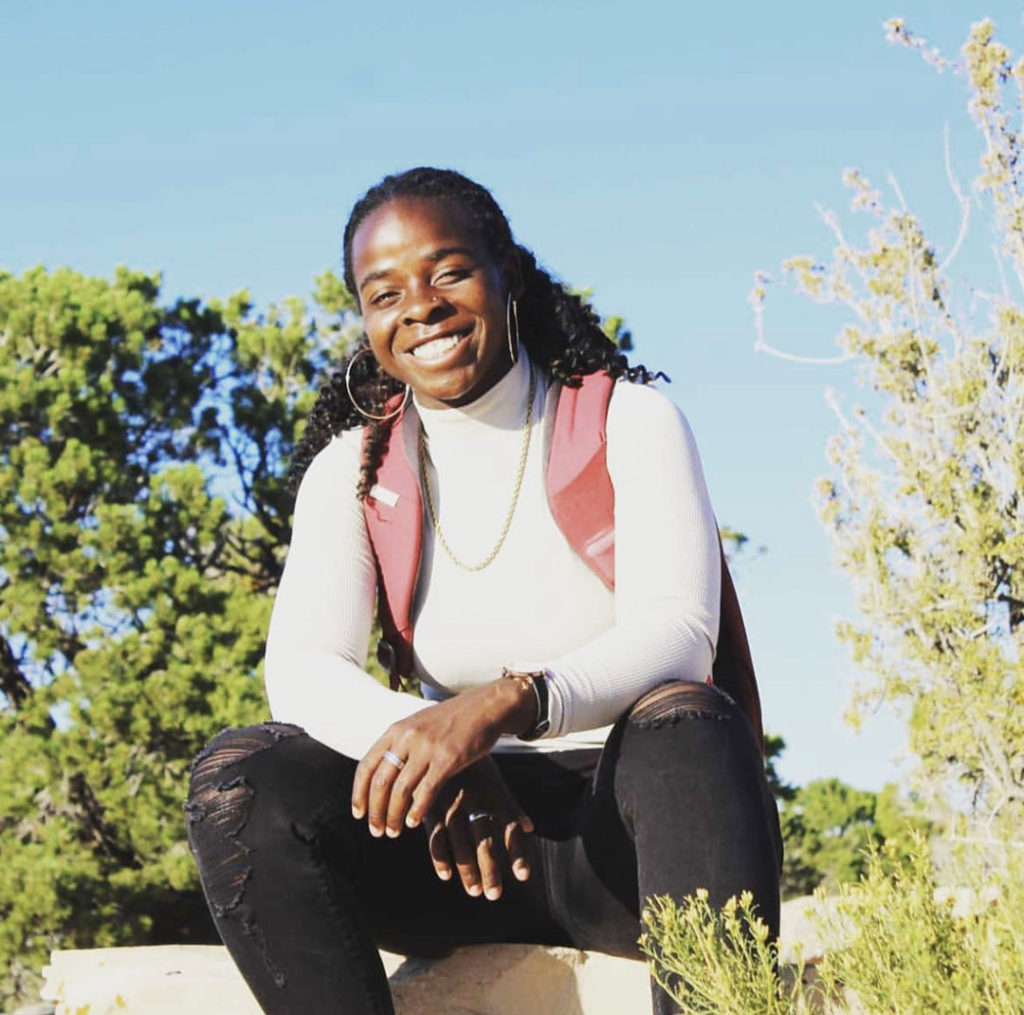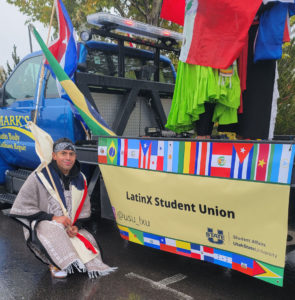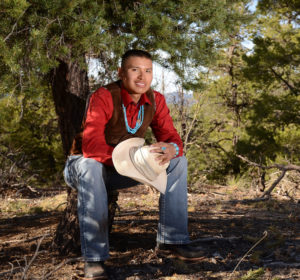Recognizing that people of color have historically been left out of the U.S. public land conservation movement, SUWA is committed to raising up diverse voices from across the West. Congratulations to Sauvelyne (Addie) Randel (CO), Keon Nez (CO/NM), and Felipe de Jesús Ruiz (UT) for winning SUWA’s second annual Stewardship Scholar Essay Contest!
Grand Prize Winner
Sauvelyne (Addie) Randel
 Hello my name is Sauvelyne (Addie) Randel (she/her). I was born in Port-au-Prince, Haiti but have lived a large majority of my life in Colorado. I am currently a Sophomore at Colorado Mesa University. Academically, I am pursuing a Political Science degree with a Spanish minor. I compete at the varsity level on the CMU women’s soccer team.
Hello my name is Sauvelyne (Addie) Randel (she/her). I was born in Port-au-Prince, Haiti but have lived a large majority of my life in Colorado. I am currently a Sophomore at Colorado Mesa University. Academically, I am pursuing a Political Science degree with a Spanish minor. I compete at the varsity level on the CMU women’s soccer team.
At the end of the day, my dream has always been to serve underrepresented communities in any way I possibly can. After graduating, I hope to use my Spanish and knowledge of the systems within the United States to become a translator in the courts. When my focus is extended beyond academics or athletics, I enjoy finding a spot in the sun to read or write poetry. I believe there is so much to be found within a novel or outside, and more times than not it finds you. One of the greatest escapes we have is in our backyards!
Semi-Finalists
Keon Nez
My name is Keon Nez (he/him). I come from a small and rural town in New Mexico called Navajo and belong to the Navajo tribe which inhabit that area. I am an Engineering major and Math minor as a senior at Fort Lewis College in Durango. The truth is that I love learning–I’m always seeking new opportunities to learn. The quality of content of past courses always exceeds my expectations. What I hope to gain from this college is a foundation of graduate level knowledge valuable for nearly any engineering field. All of my brilliance is credited to my family, friends, culture, and beliefs.
Essay Excerpt:
“As climate disaster persists in disrupting lifeways across the Southwest, the human population has the responsibility to protect and conserve the planet. Traditionally, it is the responsibility of the human population to take care of the universe and protect the ecology. In this way, they will be doing more than the human world justice since they will be directly protecting ecosystems and thus looking after the wildlife. By protecting the wildlife, humans are benefiting the more-than-human world, and being responsible for themselves and their practices in their efforts to prevent animal species extinction, sustain healthy animals and plants, and protect biodiversity and ecology.”
Felipe de Jesús Ruiz
 Hello, my name is Felipe de Jesús Ruiz and I’m a first generation Mexican-American student at Utah State University. I’m currently a sophomore working on my computer science degree. Upon graduation I will aim to work in blockchain development and focus on projects that challenge how we view everyday life.
Hello, my name is Felipe de Jesús Ruiz and I’m a first generation Mexican-American student at Utah State University. I’m currently a sophomore working on my computer science degree. Upon graduation I will aim to work in blockchain development and focus on projects that challenge how we view everyday life.
When I’m not working on my school work I’m probably playing basketball or hiking in Logan canyon. My favorite place to decompress and get some fresh air is White Pine Lake.
Essay excerpt:
What I’ve learned from traveling is that an unstable climate stresses human physiology and anatomy. Although the human structure is designed to adapt to change, an individual’s ability to adapt varies even based on the region they are in. There are so many variables that influence any given region’s climate: humidity, elevation, vegetation, industrial waste or byproducts, element composition – such as carbon! Carbon is an essential building block of life. It is necessary for all matter at an atomic level. It is in food, it is essential for creating air, and is a part of vital life processes. Our natural biomes provide carbon for us as we provide so many other things for our biomes through the natural occurring symbiosis.
Yet the imbalance of carbon in the atmospheric environment is disrupting our global climate, quality of life in our region, our biomes, and everything that resides within them.”


